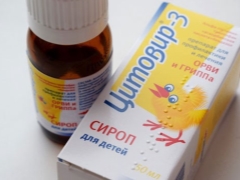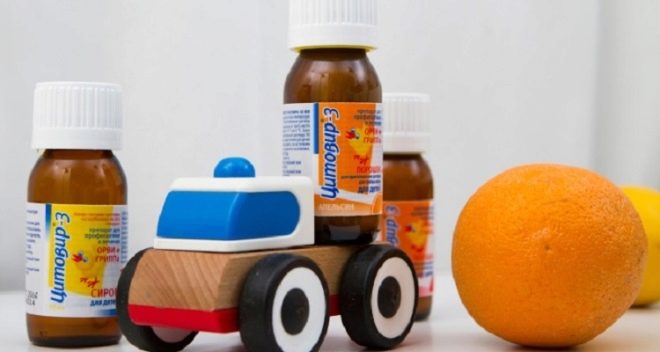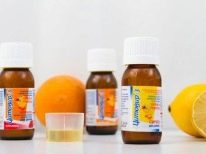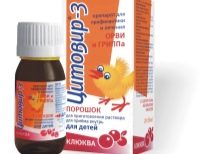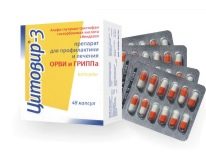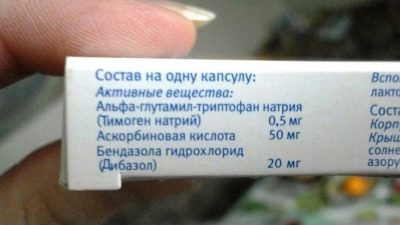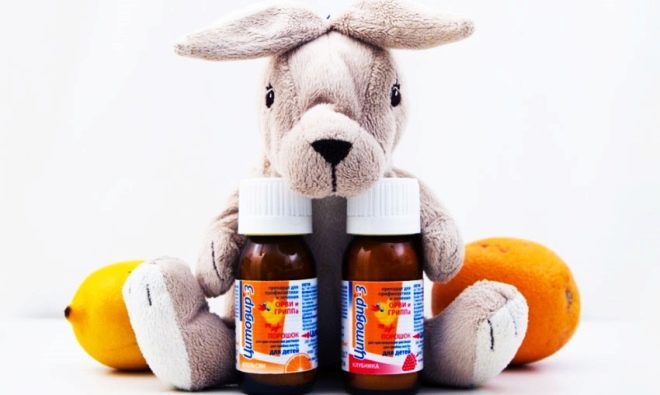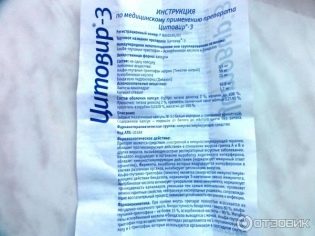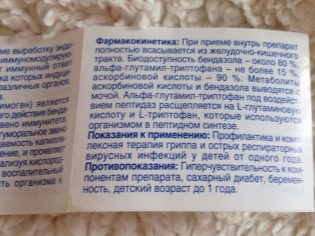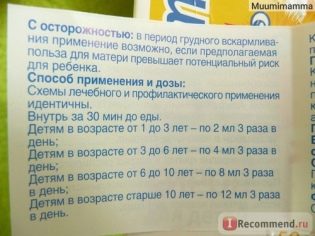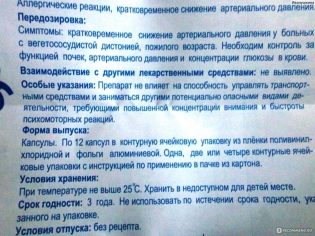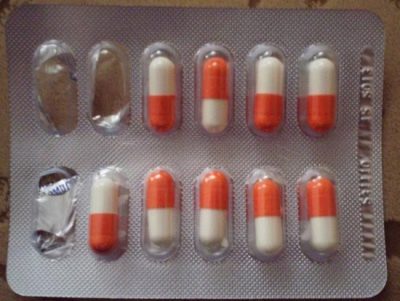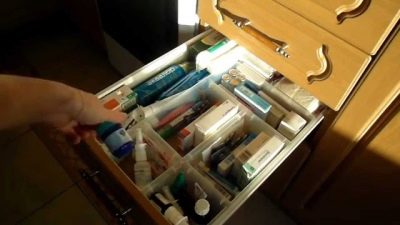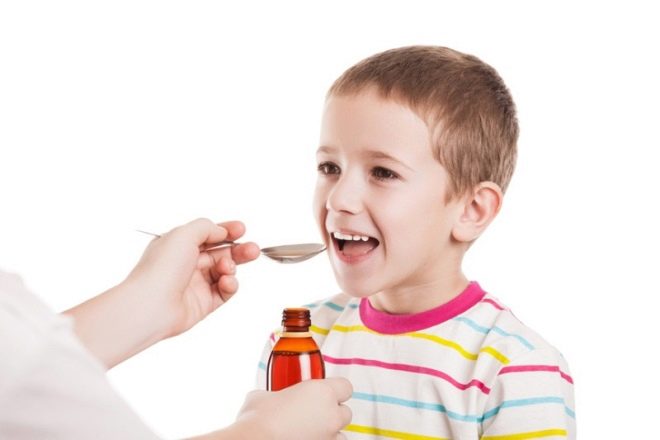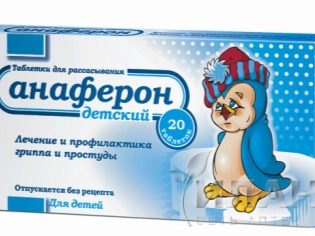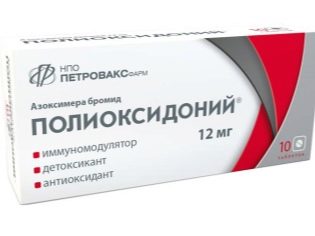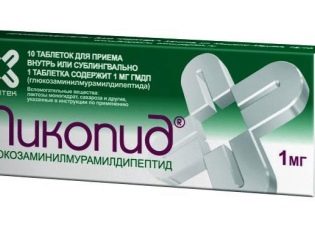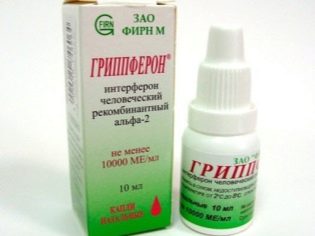Tsitovir-3 for children: instructions for use
In the season of viral diseases, drugs that can strengthen the immune system and help the body overcome harmful pathogens are very relevant. One of them is Tsitovir-3. It is actively used in pediatric practice, prescribing children of different ages.
Release form
"Tsitovir-3" is presented in pharmacies in three forms:
- Syrup. It has a sweet taste and a yellowish color, but such medicine may be colorless. Syrup is sold in dark glass bottles, and in one bottle is 50 ml of solution. In order to be able to accurately dose the medicament, a dosing spoon is also placed in the box, which can be replaced with a measuring cup or a dosing pipette.
- Powder. It is also sold in dark-colored or plastic glass bottles. One bottle holds 20 grams of white or white-yellow powder. It may have a cranberry, orange or strawberry smell, so after adding water to the powder, the taste of the prepared solution can be cranberry, orange or strawberry. There is also a neutral option - odorless powder, which when mixed with water forms a sweet, tasteless solution. One or two metering devices are attached to the bottle, for example, a measuring cup.
- Capsules They have an orange cap and a white case, and inside is a white powder with no specific odor. Capsules are packaged in blisters or plastic jars of 12 pieces (this amount is required for one course of treatment), and also sold in packs of 24 and 48 pieces.
Composition
In each of the forms of Tsitovir-3 there are three active compounds at once:
- Alpha-glutamyl-tryptophan is in the form of sodium alpha-glutamyl-tryptophan (it is also called sodium timogen). The amount of such compound in 1 ml of syrup or solution made from powder is 0.15 mg, and 0.5 mg in the contents of one capsule.
- Vitamin C. Its dosage in each milliliter of syrup, and also in 1 ml of solution from powder form - 12 mg. One capsule contains this vitamin in the amount of 50 mg.
- Bendazole Hydrochloride, also called Dibazol. This substance is contained in 1 ml of syrup or diluted powder in the amount of 1.25 mg, and in a single capsule in a dose of 20 mg.
The only auxiliary components of Tsitovir-3 in syrup are water and sucrose, and the powder form includes fructose and strawberry, cranberry or orange flavoring (only fructose is present in the medicine with a neutral taste). The contents of the capsules are milk sugar and calcium stearate, and their shell is made of titanium dioxide, gelatin and several dyes.
Operating principle
"Tsitovir-3" refers to drugs with an immunostimulating effect, as it can stimulate the formation of interferon in the human body. Due to the activation of immune cells (mainly T-cell), the drug normalizes the state of the immune system, which helps to fight infectious agents.
Such a drug also has antiviral activity, in particular, with respect to influenza A and B viruses, as well as to many other pathogens of viral respiratory diseases.Due to the inclusion of Tsitovir-3 in the composition of ascorbic acid, it also affects humoral immunity. In addition, under the action of such a vitamin, capillary permeability is normalized, which helps suppress the inflammatory process.
The ingested "Tsitovir-3" is quickly absorbed. Vitamin C (about 90%) and bendazole (about 80%) have the highest bioavailability among the drug components. But alpha-glutamyl-tryptophan is absorbed by only 15%. After entering the digestive tract, it breaks down into tryptophan and glutamic acid in L-forms. These amino acids are included in the process of peptide synthesis. Other active substances of the drug are converted into metabolites and leave the body with urine.
Indications
The main reason for prescribing Tsitovir-3 to children is flu or another viral infection, in which the upper respiratory tract is affected. The drug is in demand both for the treatment of SARS and influenza, and for their prevention.
How old is allowed?
The drug in the form of powder or syrup is prescribed to children from 1 year. On the packaging of these forms of the drug is marked "for children". "Tsitovir-3" capsules can be given to young patients who have turned 6 years old.
Contraindications
Any form of "Tsitovir-3" should not be used in small patients with hypersensitivity to any of the components of the drug. Syrup is also contraindicated in children with diabetes, as it contains a significant amount of sucrose. Powder form is also not used in diabetics, because it includes fructose.
Side effects
After taking Tsitovir-3, blood pressure may decrease, but this effect is short-lived and soon disappears.
Some children develop an allergic reaction to this medication (most often it is manifested by urticaria), which requires immediate cancellation.
Instructions for use
Syrup is given to children undiluted by measuring the required volume of the drug with a pipette, a glass or a spoon. Before using the powder, you need to make a liquid medicine by adding 40 ml of water inside the bottle. It should be boiled and cooled (not warmer than room temperature). The components must be mixed well to completely dissolve the powder. The result is 50 ml of solution.
The regimen of syrup or solution prepared from powder, if the patient has got an acute respiratory viral infection or influenza, provides for the triple use of the drug within 4 days. The medication is given to a child to drink half an hour before meals in such a single dose:
- if the patient is 1-3 years old, 2 ml each;
- if the baby is 3-6 years old - 4 ml;
- if the child is from 6 to 10 years old, 8 ml each;
- if the child is more than 10 years old - 12 ml.
The scheme for prophylactic administration of syrup or Tsitovir-3 solution is the same, but if necessary, the course can be repeated after 3 or 4 weeks.
"Tsitovir-3" capsules are also prescribed in a short course of 4 days. Children over six years old take this medication one capsule three times a day, swallowing the medicine half an hour before meals and drinking clean water. If the tool is used for prophylactic purposes, then after 3-4 weeks, the course of treatment is repeated.
Overdose
There are no data in cases when the child took a large dose of the drug and this had an impact on his condition. There are no data in the instructions for Tsitovir-3.
If an overdose is detected, standard measures are recommended, which are used in such situations - gastric lavage, sorbent administration, treatment to a doctor.
Interaction with other drugs
"Tsitovir-3" can be combined with many other drugs, including drugs to reduce the temperature, cough and other drugs prescribed for SARS and influenza. The manufacturer does not mention the incompatibility of syrup, capsules or powder with any medicines.
Terms of sale
To buy "Tsitovir-3" in syrup or powder, you must first take a prescription from your doctor, and the capsules belong to non-prescription drugs.One bottle of syrup costs about 380-400 rubles, for one bottle of powder you need to pay about 300-350 rubles. A package of 12 capsules costs, depending on the pharmacy, 220-300 rubles.
Storage conditions
The recommended storage temperature for all forms of the drug is below +25 degrees Celsius, but the solution prepared from powder should be placed in the refrigerator. In order to prevent accidental taking of medication (especially in liquid form, which can attract children with its sweet taste), it is important to keep Tsitovir-3 in an inaccessible place.
Shelf life is different in different forms. The syrup should be used within 2 years from the date of manufacture, and the shelf life of the capsules is 3 years.
As for the powder, it can be stored for up to 3 years inside the sealed vial from the date of issue, but after mixing with water it is permissible to store it for no longer than 10 days.
Reviews
About 70-80% of reviews on the use of "Tsitovir-3" in children are positive. They call the drug effective and confirm that it helped prevent the flu or accelerated the child's recovery from ARVI. Taste of liquid forms of the drug is noted as pleasant, and side effects are rarely detected.
The advantages of syrup and powder include the possibility of using in small children older than a year, a simple regimen, a short course of treatment and the absence of such forms of flavors and dyes. Syrup is also praised for its long shelf life, although there are no harmful preservatives in this preparation either, and the lack of sugar is called a plus of the solution prepared from the powder.
However, there are also negative reviews, in which mothers note the absence of a therapeutic effect or the appearance of adverse reactions. You can also see complaints about the short shelf life of the Tsitovir-3 solution made from the powder form. Some parents call the price of medication acceptable, and others - tall.
Analogs
If necessary, replace “Tsitovir-Z” with a medicine with a similar effect on the children's body, the doctor may prescribe the following.
- «Anaferon children. " These tablets contain antibodies to interferon, so they have immunomodulatory and antiviral effects. The drug should be absorbed, and for the smallest patients it is dissolved in water and given in suspension. The drug can be used in children from 1 month.
- «Lycopid». Such medicine in tablets stimulates the immune system and at a dosage of 1 mg can be administered to children over 3 years old. It is prescribed not only for viral, but also for bacterial infections.
- "Grippferon". This medicine in the form of a spray or drops contains interferon. It is often prescribed for the flu or for the prevention of ARVI. In children, it can be used at any age.
- "Polyoxidonium". This medicine is represented by suppositories, pills and lyophilisate. It affects the immune system and also has detoxification and antioxidant effects. In children older than 6 months, only lyophilisate is used. Tablets are given to patients older than three years, and candles in a dose of 6 mg are used from the age of six.
- "Derinat". Such a drug in a spray or drops is used in children from birth. Thanks to sodium deoxyribonucleinate, it stimulates immune function and helps protect the children's body from viral infection.
Dr. Komarovsky will talk about antiviral drugs for children in the next video.
